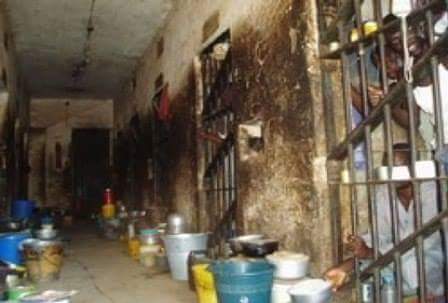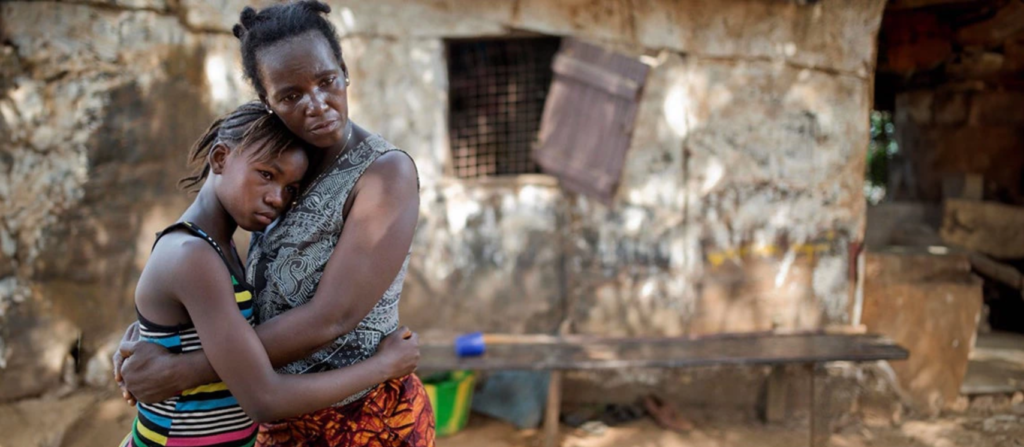The Nigerian prison system is overwhelmed with problems that make the administration of the Correctional Service dysfunctional. The prisons are deplorable, overcrowded, with dated facilities, poor, grossly inadequate and overstretched services. Prisons are inundated with issues such as poor infrastructure, limited health care services for prisoners, hazardous and unsanitary conditions, and overcrowding, which are clear cases of human rights abuses. If not addressed thoroughly, these mounting issues could lead to challenges that may spiral out of control and bring more instability to a country overwhelmed with security and economic challenges. The compounding troubles of Nigeria’s prisons may be a ticking time bomb that could drive Nigeria to the edge.
According to government statistics gleaned from the official website of the NCS, there are a total of 84,283 inmates across the facilities of the Service. About ninety-eight per cent of this number are male inmates, while 2 per cent are female. The number awaiting trial is 57,288. This number takes up approximately 68 per cent of the prison population. This number is a lot and points to possible weaknesses in the criminal justice administration system. This picture aligns with the alarm that Lawal Pedro, the Lagos State Attorney General and Commissioner for Justice, raised during the 2024 ministerial briefing. During the briefing, the commissioner stated that seven of Lagos’s correctional and custodial centres are strained by 104 per cent. These correctional centres were built to accommodate 4,754 inmates. However, they hold 9,691 inmates, which is far beyond their capacity.
Apart from the ponderous state of the country’s prison system, another troubling concern is the devolving structures of prison facilities. A 2023 study stated that prisons lacked essential amenities. For instance, the report pointed out that some prisons had a shortage of potable water. Unhygienic conditions like overcrowding, poor ventilation, filthy prison cells, and poor feeding and medical services severely compromise human dignity. Overall, the structure of Nigeria’s prison system is weak, making the prisons unsuitable for human habitation. This report resonates with another report by the US Department of Justice. In its report, the US pointed out that Nigeria’s correctional centres were poorly ventilated, had limited spaces, and conditions were unhygienic.
The problems mentioned above are worthy of serious attention. Nonetheless, the most pressing issue that needs intervention from the government is the constant prison breaks. There has been a surge in prison breaks within the country in recent years. In the last ten years, Nigeria has experienced 20 jailbreaks. In 2016 alone, prison break incidents were reported in Enugu, Kogi and Abuja. In 2017, additional jailbreaks occurred in Enugu and Akwa Ibom. In 2018, 210 inmates escaped from prison in Niger state. The most notorious prison break happened in 2021 when 1,800 inmates in the Owerri Correctional Facility escaped after a violent armed attack. Similar jailbreaks have been reported in the Oyo, Kogi, and Edo states. On July 6, 2022, Boko Haram successfully attacked Kuje prison in Abuja. This incident freed more than 400 inmates. In the most recent jailbreak, which occurred on Wednesday, April 24, 2024, 119 prisoners escaped from the Medium Security Custodial Services in Suleja, Niger state, after heavy rainfall destroyed the facility. This series of prison breaks is a cause of great concern about the security and peace of citizens. Many of these inmates can escape either because of poor infrastructural facilities of prisons or violent armed attacks that can breach prison security systems. This highlights the weakness of Nigeria’s prisons to hold onto its prisoners and ensure that citizens are secure, not having to worry about criminals being on the loose or having their lives and property destroyed.
These problems compromise and call to question the NCS’s ability to fulfil its core mandate of protecting the lives and property of citizens from further destruction by criminals and the rehabilitation of those who have been found guilty of committing crimes. Problems of the Nigerian Correctional Facilities are not without their causes. One of the significant causes of overcrowding in Nigerian prisons is the vast number of people awaiting trial. Some are held without charges, adding to the already overpopulated prison. A weak and slow criminal judicial system is another cause of prison congestion, as suspects are sometimes held without trials for lengthy periods.
On the other hand, some judicial processes are protracted and sometimes experience bureaucratic bottlenecks. Some crimes are minor enough to receive just a fine. However, stringent bail conditions leave many in custody, even for offences that may not require jail term. These stringent bail requirements make it incredibly difficult for some detainees to fulfil, thus prolonging the judicial process and leading to more extended prison detention time. Prison breaks happen due to poor infrastructure and the low maintenance of correctional facilities. Adamu Dazu of the FCT Command for the Nigerian Correctional Service said, “The service is not unmindful of the fact that many of its facilities were built during the colonial era and that they were old and weak.” This statement highlights the wretched state of Nigerian correctional centres.
The challenges of the prison system negatively affect prisoners and the society at large. For those in prison or those awaiting trial, the structural deterioration of prison creates a toxic environment. Unsanitary conditions in prisons breed diseases and expose inmates to life-threatening situations. Prisoners may be more prone to depression and distress when the environment of prisons becomes less habitable. As stated earlier, quality medical services are lacking in Nigerian prisons. This makes treatable diseases such as cholera, malaria, and tuberculosis deadlier than they are supposed to be, resulting in preventable death. Incessant prison breaks and hazardous living conditions of those awaiting trial bring a lack of distrust to the prison system. These problems erode the functionality of prisons and create a negative perception of prison facilities in Nigeria. Consistent prison breaks endanger the lives of prison security personnel and citizens of the country, especially those on whose behalf most of the criminals were sent to jail.
There are urgent steps that need to be taken by the National Assembly to reform the country’s prison system. The first urgent step is ensuring adequate budgetary allocation for rehabilitating correctional facilities nationwide. There are fears that budget allocations for correctional services may have been misappropriated. Concerned by this fear, the House of Representatives undertook to investigate the ₦613 billion allocated to the agency over the decade from 2010 to 2019. Many prisons in Nigeria are old and outdated. Some prisons, such as the Kuje prison, do not have closed-circuit television (CCTV). The redesign and development of older prisons are necessary to meet modern-day safety standards and upgrade prisoners’ rights as we safeguard the citizens from incessant jailbreaks.
Moreover, there is a need for a structural overhaul of the prison system to modernise prison administration, infrastructure, and services and strengthen prison security. This can be achieved through appropriate training, deployment of relevant technology, and seeking strategic partnerships and technical assistance. Introducing state-of-the-art technology in all correctional centres, including metal detectors, x-ray equipment, and a rigorous database that has the information of those in and out of the prison system, will be crucial in preventing further prison breaks. The judicial process must be updated with technologies to help the justice system identify and promptly address inefficient processes and bottlenecks. This will enable both the police and judges to speed up cases. There should also be a review of policies and procedures in sentencing across all states. Putting alternative sentencing into law will go a long way in decongesting prisons.



